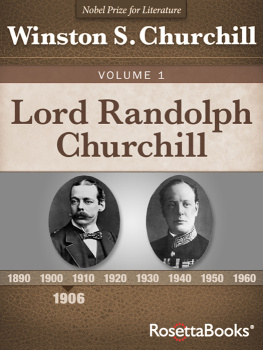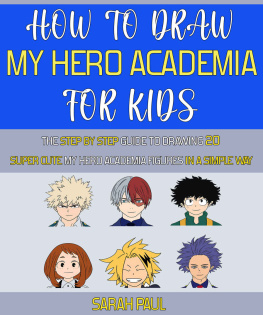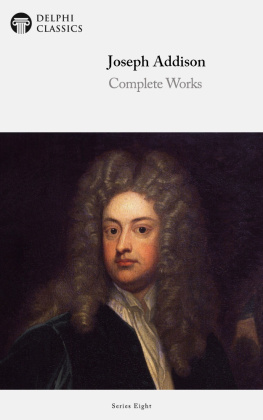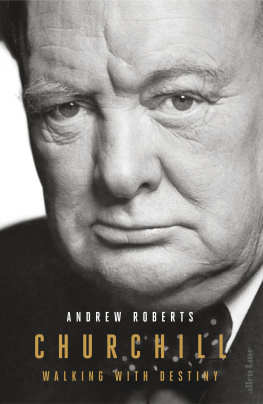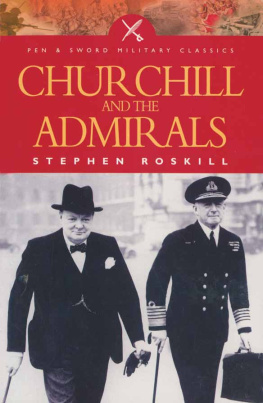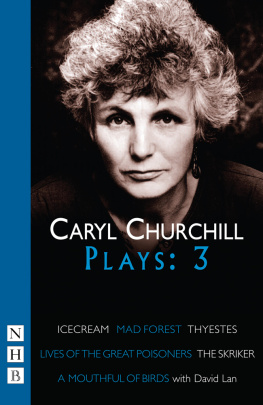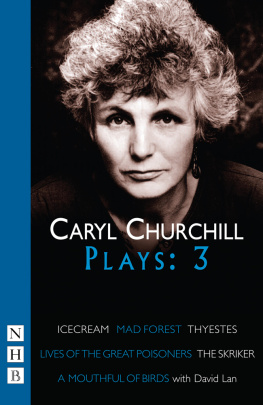Paul Addison - Churchill : The Unexpected Hero
Here you can read online Paul Addison - Churchill : The Unexpected Hero full text of the book (entire story) in english for free. Download pdf and epub, get meaning, cover and reviews about this ebook. year: 2005, publisher: Oxford University Press, UK, genre: Non-fiction. Description of the work, (preface) as well as reviews are available. Best literature library LitArk.com created for fans of good reading and offers a wide selection of genres:
Romance novel
Science fiction
Adventure
Detective
Science
History
Home and family
Prose
Art
Politics
Computer
Non-fiction
Religion
Business
Children
Humor
Choose a favorite category and find really read worthwhile books. Enjoy immersion in the world of imagination, feel the emotions of the characters or learn something new for yourself, make an fascinating discovery.

- Book:Churchill : The Unexpected Hero
- Author:
- Publisher:Oxford University Press, UK
- Genre:
- Year:2005
- Rating:4 / 5
- Favourites:Add to favourites
- Your mark:
- 80
- 1
- 2
- 3
- 4
- 5
Churchill : The Unexpected Hero: summary, description and annotation
We offer to read an annotation, description, summary or preface (depends on what the author of the book "Churchill : The Unexpected Hero" wrote himself). If you haven't found the necessary information about the book — write in the comments, we will try to find it.
Churchill : The Unexpected Hero — read online for free the complete book (whole text) full work
Below is the text of the book, divided by pages. System saving the place of the last page read, allows you to conveniently read the book "Churchill : The Unexpected Hero" online for free, without having to search again every time where you left off. Put a bookmark, and you can go to the page where you finished reading at any time.
Font size:
Interval:
Bookmark:
Churchill
The Unexpected Hero
PAUL ADDISON


Great Clarendon Street, Oxford OX2 6DP
Oxford University Press is a department of the University of Oxford.
It furthers the Universitys objective of excellence in research, scholarship,
and education by publishing worldwide in
Oxford New York
Auckland Cape Town Dar es Salaam Hong Kong Karachi Kuala Lumpur
Madrid Melbourne Mexico City Nairobi New Delhi Shanghai Taipei Toronto
With offices in
Argentina Austria Brazil Chile Czech Republic France Greece
Guatemala Hungary Italy Japan South Korea Poland Portugal
Singapore Switzerland Thailand Turkey Ukraine Vietnam
Oxford is a registered trade mark of Oxford University Press
in the UK and in certain other countries
Published in the United States
by Oxford University Press Inc., New York
Paul Addison 2005
The moral rights of the author have been asserted
Database right Oxford University Press (maker)
First published 2005
All rights reserved. No part of this publication may be reproduced,
stored in a retrieval system, or transmitted, in any form or by any means,
without the prior permission in writing of Oxford University Press,
or as expressly permitted by law, or under terms agreed with the appropriate
reprographics rights organizations. Enquiries concerning reproduction
outside the scope of the above should be sent to the Rights Department,
Oxford University Press, at the address above
You must not circulate this book in any other binding or cover
and you must impose this same condition on any acquirer
British Library Cataloguing in Publication Data
Data available
Library of Congress Cataloging in Publication Data
Data available
ISBN 0199279349
3 5 7 9 10 8 6 4
Typeset by RefineCatch Limited, Bungay, Suffolk
Printed in Great Britain
on acidfree paper by
Biddles Ltd., Kings Lynn, Norfolk
For Rosy
This book originated with an invitation from the late Colin Matthew to write the article on Churchill for the new Oxford Dictionary of National Biography. I owe a debt of gratitude to him, and also to his successor Brian Harrison, and the staff of the DNB, for all their encouragement and support. Having completed the article, which ran to about 30,000 words, it occurred to me that it could be expanded into a short book in which I would be able to give more space to the analysis of Churchills character and career. I am grateful to Ruth Parr at OUP for supporting the initial proposal, to Bonnie Blackburn for impeccable copyediting, and to Kay Rogers and Anne Gelling for seeing the book efficiently through the press. My agent Bruce Hunter has been an unfailing source of wisdom and encouragement.
I am grateful to the University of Edinburgh for granting me the study leave in which to complete this book. Dr Jeremy Crang and Dr David Stafford, my colleagues at the Centre for Second World War Studies, have been the most supportive of colleagues and friends. My thanks are also due to many others for their generous assistance or advice, and especially Professor Geoffrey Best, Dr Angus Calder, Professor Antoine Capet, Mr Sebastian Cox, Dr Frances Dow, Mr Owen Dudley Edwards, Sir Martin Gilbert, Professor Rhodri Jeffreys-Jones, Dr Richard Mackenney, Professor James McMillan, Dr Nicholas Phillipson, Professor John Ramsden, Dr Victor Rothwell, Professor George Shepperson, and Mr Ian S. Wood. As ever my greatest debt is to Rosy, James, and Michael.
Paul Addison
October 2004
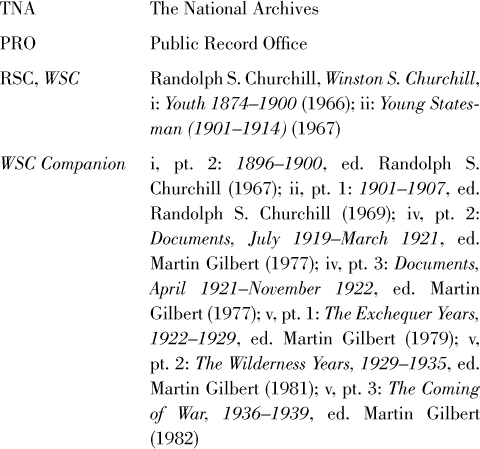
Winston Churchill won two great victories in the Second World War. The first was a victory over Nazi Germany. The second was a victory over the many sceptics who, for decades, had derided his judgement, denied his claims to greatness, and excluded him from 10 Downing Street on the grounds that he was sure to be a danger to King and Country. The roar of approval which greeted him on VE Day, as he addressed the crowds from the balcony of the Ministry of Health in Whitehall, was a moment of triumph in a battle over his reputation that had been going on ever since the turn of the century. The epic struggle between Churchill and his critics is the underlying theme of this short life.
Churchills victory was never complete. Even at the height of his power and glory there were some who resisted the enchanters spell. The day before he became Prime Minister in 1940 the Permanent Secretary to the Foreign Office, Sir Alexander Cadogan, wrote in his diary: I dont think theyll get a better P.M. than Neville [Chamberlain]. Nearly five years later he was writing: I long for poor old Neville Chamberlain again. He did know how to conduct business.hero, but afterwards his reputation went into a decline from which it has never entirely recovered. The heroes of one generation can be unmade by the next, and it remained to be seen whether Churchill would win the battle of the history books.
When I began historical research, Churchill was still alive. My subject was the transition from the Chamberlain to the Churchill governments, but I knew little of Churchill beyond his fame as a war leader. A few months later, on the afternoon of Saturday, 30 January 1965, I stood in the hushed and reverent crowd as his funeral train, the coffin draped in the Union Jack, passed slowly through Oxford station. I was awestruck: the ground seemed to tremble beneath our feet. The following Saturday afternoon I was waiting for a train at the station when I noticed a frail and elderly man sitting alone on a bench with a little battered suitcase. It was Churchills wartime deputy, Clement Attlee, who had been one of the pall-bearers of his coffin. No one on the crowded platform was taking any notice of him. When his train came in he found it difficult to climb aboard and a porter came forward to give him a helping hand. I said to the porter: That was Mr Attlee, wasnt it? I think it was, he replied.
Attlee was the giantkiller who had defeated Churchill in the 1945 general election. His Labour government had constructed a new postwar settlement at home and abroad while Churchill languished in opposition. He had even nationalized the railway which carried Churchill on his final journey. Attlee was a thoroughly comprehensible type of Englishman who applied the service ethic of the public schools and the officer class to the Labour party and the socialist cause. There was very little mystery about him and no hint of charisma. Churchill was evidently something else. His exuberant image, complete with Vsign, giant cigar, and outlandish costumes, was as familiar around the world as Charlie Chaplins tramp. But who was this exotic visitor from another world and what exactly were his claims to greatness?
Churchill was the only British politician of the twentieth century to become an enduring national hero. In a sense this was no accident. From youth onwards he was possessed by the ambition to be a great military hero, like his ancestor the first duke of Marlborough, and a great democratic hero, like his idealized father, Lord Randolph Churchill. In his more exalted moods he imagined that he was a man of destiny, intended by Providence to play a heroic role on the stage of history. As he remarked to Asquiths daughter Violet, at their first meeting in 1906, We are all worms. But I do believe that I am a glowworm. That night she burst into her fathers room with the news that for the first time in her life she had encountered genius. Well, Asquith replied, Winston would certainly agree with you there but I am not sure you will find many others of the same mind. His dry comment set the scene for decades of conflict between Churchills heroic selfimage, communicated to the world through a stupendous barrage of publicity in which oratory, journalism, and history were all pressed into service, and the hardbitten observations of politicians, civil servants, and military men, conversing in their clubs after another difficult day with Winston.
Next pageFont size:
Interval:
Bookmark:
Similar books «Churchill : The Unexpected Hero»
Look at similar books to Churchill : The Unexpected Hero. We have selected literature similar in name and meaning in the hope of providing readers with more options to find new, interesting, not yet read works.
Discussion, reviews of the book Churchill : The Unexpected Hero and just readers' own opinions. Leave your comments, write what you think about the work, its meaning or the main characters. Specify what exactly you liked and what you didn't like, and why you think so.


